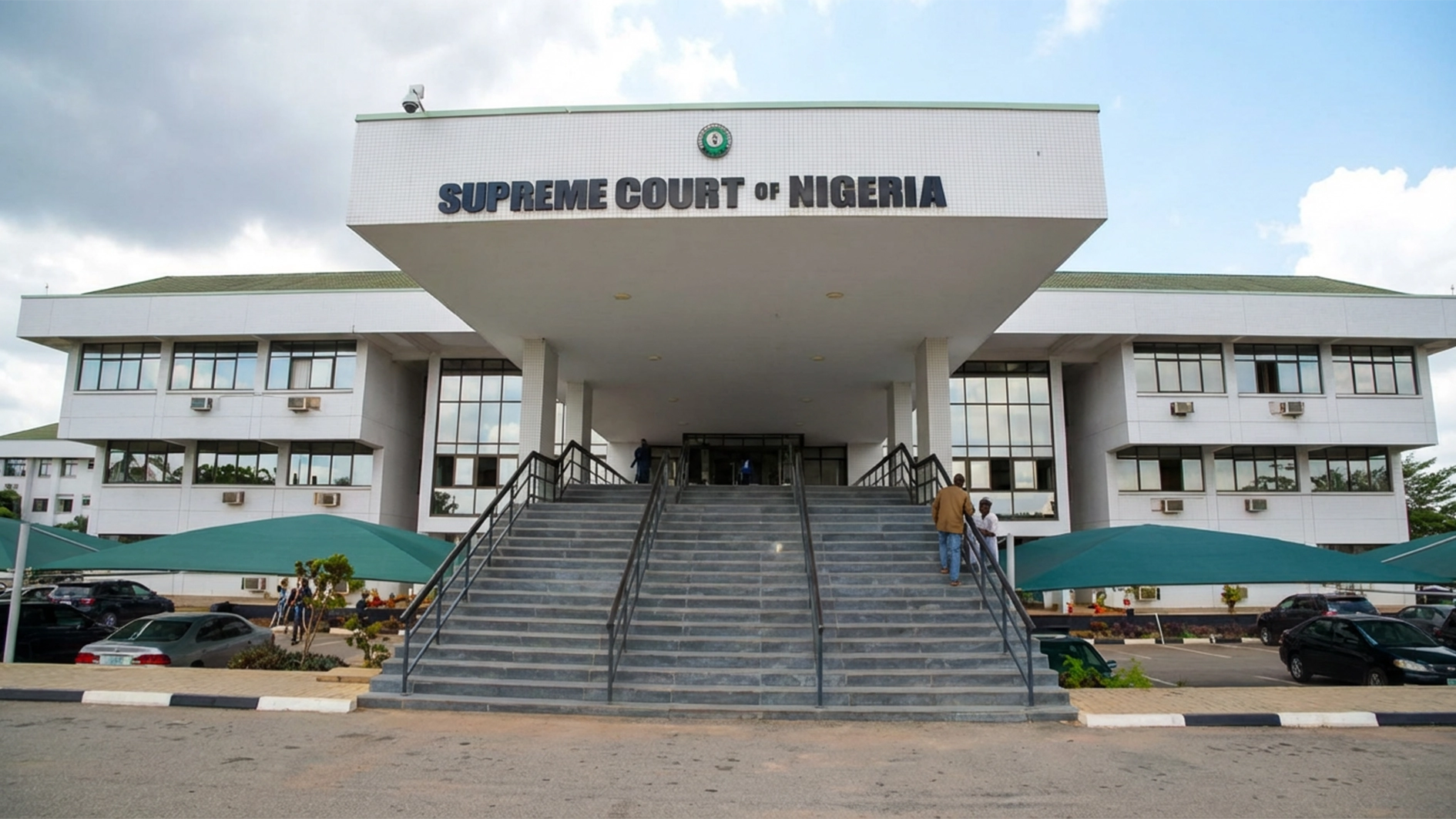The Nigerian Senate has called for urgent federal intervention to curb rising insecurity across Kwara, Kebbi, and Niger States, insisting that kidnappers should face the death penalty to serve as a strong deterrent against escalating crimes. Lawmakers also recommended a review of Nigeria’s firearms laws to equip responsible citizens in combating criminal networks, echoing practices in over 175 countries worldwide.
The resolution followed the motion “Urgent Need to Address Escalating Insecurity in Kwara, Kebbi and Niger States – Call for Immediate and Comprehensive Federal Intervention,” moved by Lola Ashiru representing Kwara South over the wave of attacks on schools, worship centres, and rural communities, including the 18 November raid on Christ Apostolic Church (CAC) in Eruku, Kwara, where two worshippers were killed and 38 others abducted. Coordinated security operations subsequently secured the release of all abductees, alongside 51 students freed in Niger State.
Senators expressed deep concern that mass abductions and raids have forced school closures across five local government areas in Kwara, in Niger and Kebbi States, and in all 47 Federal Unity Schools nationwide. “We must act decisively to protect children, worshippers, and rural communities from further trauma,” said Deputy Senate Leader Lola Ashiru, sponsor of the motion.
Alarmingly, reports indicate that military personnel were withdrawn from Government Girls Secondary School, Maga, in Kebbi shortly before a kidnapping, prompting the Senate to mandate an urgent investigation. Lawmakers also warned of increasingly sophisticated criminal networks exploiting porous forest corridors across Kwara–Kogi, Kebbi–Zamfara, and Niger’s Shiroro–Rafi–Munya regions, aided by internal collaborators providing intelligence and logistics.
In his own contribution, Senator Sani Musa faulted the rescue of 58 abductors by the Federal Government without firing a single shot, raising suspicion that ransom might have been paid to the abductors.
Musa said the terrorists can only be defeated with modern technology, wondering why the office of the National Security Adviser and the Ministry of Communications have not been able to track and arrest the terrorists who use mobile phones and other communication gadgets in their operations.
The Niger senator said the two government agencies should be able to tell Nigerians the locations of the terrorists because they have the technology to detect such. The senator also insisted on identifying those negotiating ransom on behalf of the terrorists, stressing that the intermediaries must know where the terrorists live.
On his part, Senator Eyinnaya Abaribe accused the government of not telling Nigerians the truth about the security challenges plaguing the nation. According to him, communities in many local governments in Katsina, Zamfara and other states in the north have been paying taxes to terrorists and bandits for their own safety.
“If I were the Commander-in-Chief, I would call for the head of the commander who ordered the withdrawal of troops from the Kebbi school shortly before the terrorists arrived,” Abaribe said.
Senator Abdul Ningi noted that kidnapping has become somewhat a more “lucrative business” than oil and politics, even as he charged the government to be more proactive in responding to the mounting challenges. Another Kwara senator, Sadiq Umar, said the work against terrorism cannot be won if collaborators are not arrested and prosecuted.
Declaring that the country is at war, Umar said there are gaps in the operational method of the troops while calling for more investment in security. The Senate called for an amendment to the Firearms Act to allow “responsible bear arms for self-defence,” noting that the practice is obtainable in about 175 countries of the world.
It was also observed that the nation’s armed forces are being overstretched, citing a country like Egypt with bigger numerical strength than Nigeria, despite its lower population. Borno South senator, Ali Ndume, who gave the breakdown, said Egypt, with a population of about 100 million, has a one-million-man army, 500,000 police personnel and 800,000 persons on reserve.
In contrast, he said the Nigerian Army, despite having operations in 32 states in Nigeria, has less than 200,000 officers and men, while the Nigeria Police have about 400,000.
But coming from a different angle, Benue senator Titus Zam lamented that bandits have taken over many communities in his state after chasing the farmers away from their homes. “The military knows where the terrorists are. They know their locations,” Zam declared; there have never been determined efforts to rout them out.
Agreeing with Zam, Kebbi senator Yahaya Abdullahi said, “We know who they are, where they are, the routes they follow, so we must pursue and eliminate them. We should not allow the bandits to intimidate us, deprive our children of education. We are shutting down schools; what do we tell the world? That bandits have forced the Nigerian government to shut down schools. We should go after them and eliminate them.”
Deputy Senate President Barau Jibrin stressed that insecurity is a national concern requiring collective action: “No state can tackle this alone. We must harness technology, deploy drones, and enhance surveillance alongside our security agencies.” Senate Majority Leader Opeyemi Bamidele added: “All hands must be on deck. This is not the time to grandstand,” while Minority Leader Abba Moro warned of insecurity spreading nationwide. Former Senate President Ahmad Lawan described the crisis as akin to war and called for full support for President Bola Tinubu.
The Senate commended President Tinubu for cancelling foreign trips to personally coordinate security responses, actions credited with the release of abducted students. Lawmakers urged sustained intelligence-driven operations, aerial surveillance, forest combing, and community-based reporting systems. They also recommended establishing a Joint Task Force (JTF) along the Kwara–Kogi corridor, with forward operating bases in Eruku, Babanla, Oke-Ero, and Isanlu, as well as Wasagu in Kebbi.
Recognising the psychological trauma suffered by victims, the Senate directed the Federal Ministry of Humanitarian Affairs and NEMA to provide immediate relief support to affected families and communities. Senators further called on citizens to remain vigilant and resist collusion with criminal elements, which exacerbates insecurity nationwide.
In a strong legal stance, the Senate emphasised that kidnapping should be formally classified as terrorism, punishable by death, to deter perpetrators. It also called for a review of Nigeria’s firearms laws to reflect modern security challenges, arguing that responsible citizens should be empowered to defend themselves in line with international best practices.
The chamber dissolved its standing committees on National Security, Intelligence, and Air Force for reconstitution, aiming to improve oversight and responsiveness. Senators observed a minute of silence for recent victims and urged a multi-pronged approach combining policy reform, technology, intelligence, and community engagement to end the rising wave of abductions and banditry.
Deputy Senate President Jibrin concluded, “This is a turning point. Insecurity is not the responsibility of the federal government alone. Every state, community, and citizen must act. Together, we can restore peace and safeguard lives and property across Nigeria.”
Presenting his motion, Senator Ashiru expressed concern that credible reports indicate military personnel were withdrawn from the affected Kebbi school just hours before the bandits struck, raising grave questions that demand a transparent and urgent investigation.
He indicated that intelligence reports reveal the involvement of internal collaborators—often driven by economic and political desperation—who aid criminal groups with information, logistics, and escape routes, thereby exacerbating national insecurity.
He also lamented the situation whereby attackers demonstrate increasing sophistication by intercepting communications, conducting surveillance on schools, worship centres, and markets, and scavenging personal items after raids across multiple states.
He observed that criminals continue to exploit porous forest corridors, including the Kwara–Kogi axis, Kebbi–Zamfara corridor, and Niger’s Shiroro–Rafi–Munya region, complicating rescue missions and inter-state security coordination.
According to him, affected communities of Eruku, Isapa, and Koro—where a traditional ruler and retired Army General was brutally murdered by bandits—are predominantly Ekiti with cultural affinity to the Ekiti of the South West but geographically located in Kwara State. Information indicates that insurgent activities are now spreading into Osun State, signalling a dangerous expansion of the security crisis.
He also noted that the Idofian–Omu-Aran–Eruku–Egbe–Kabba (Kwara–Kogi) Federal highway remains in severe disrepair, enabling criminals to ambush travellers, escape after attacks, and exploit bush paths for concealment.
Further concerned that Kwara South alone has recorded over 40 abductions in 18 months, mirroring similar surges in neighbouring states and contributing to a broader national crisis affecting schools, farms, worship centres, and rural communities.
He expressed worry that continued inaction risks mass displacement, prolonged school closures, collapse of rural livelihoods, and long-term psychological trauma among children and vulnerable populations.






